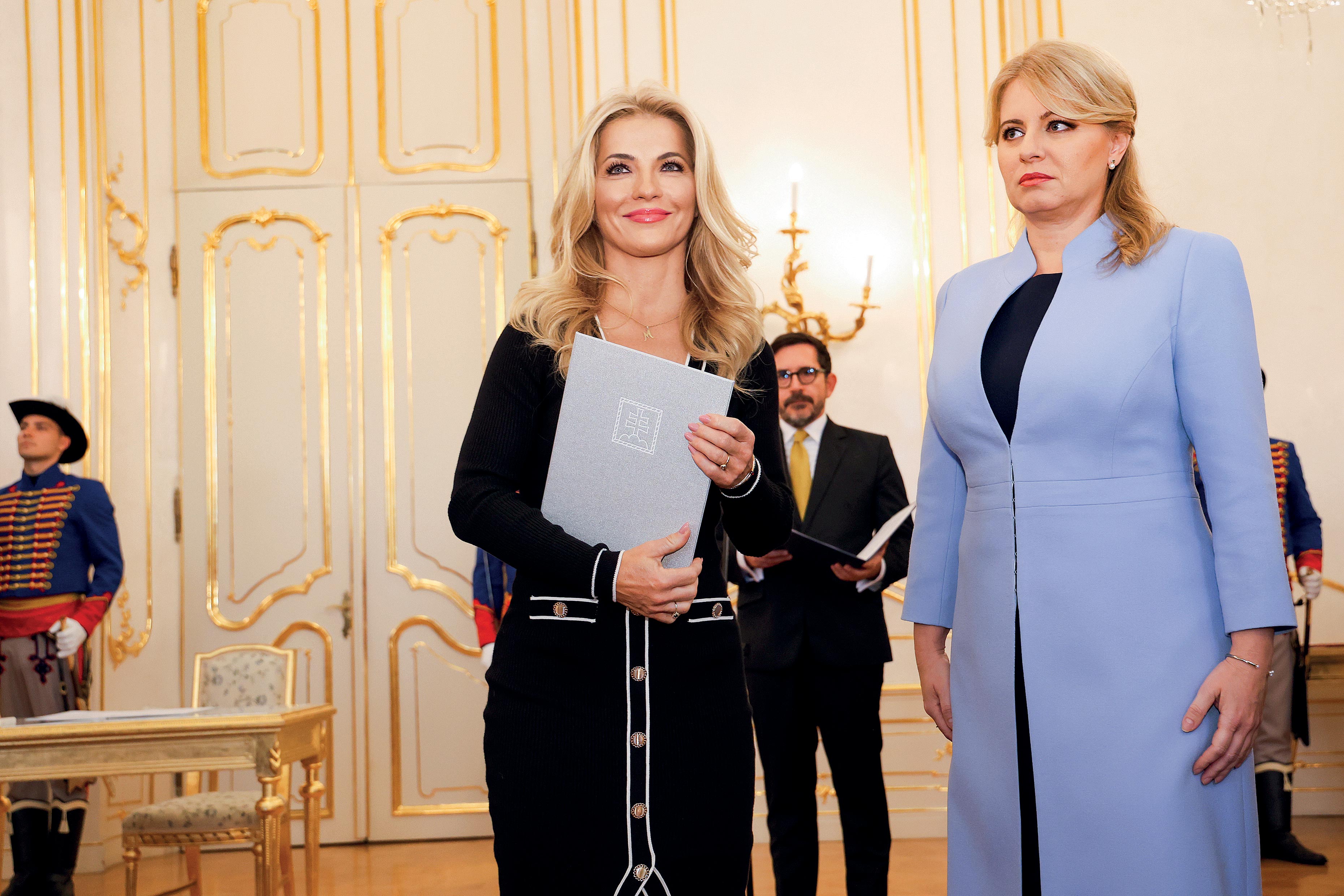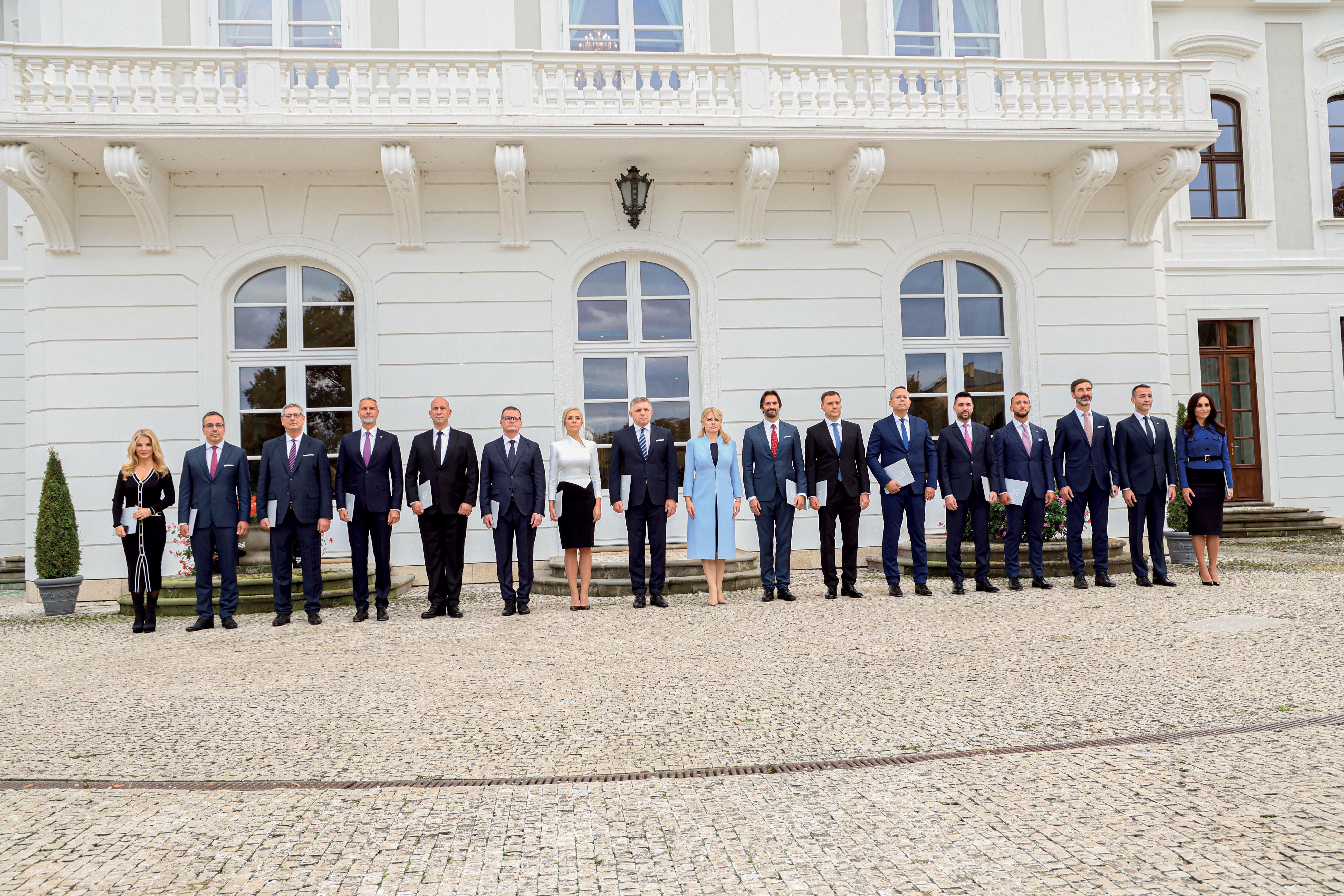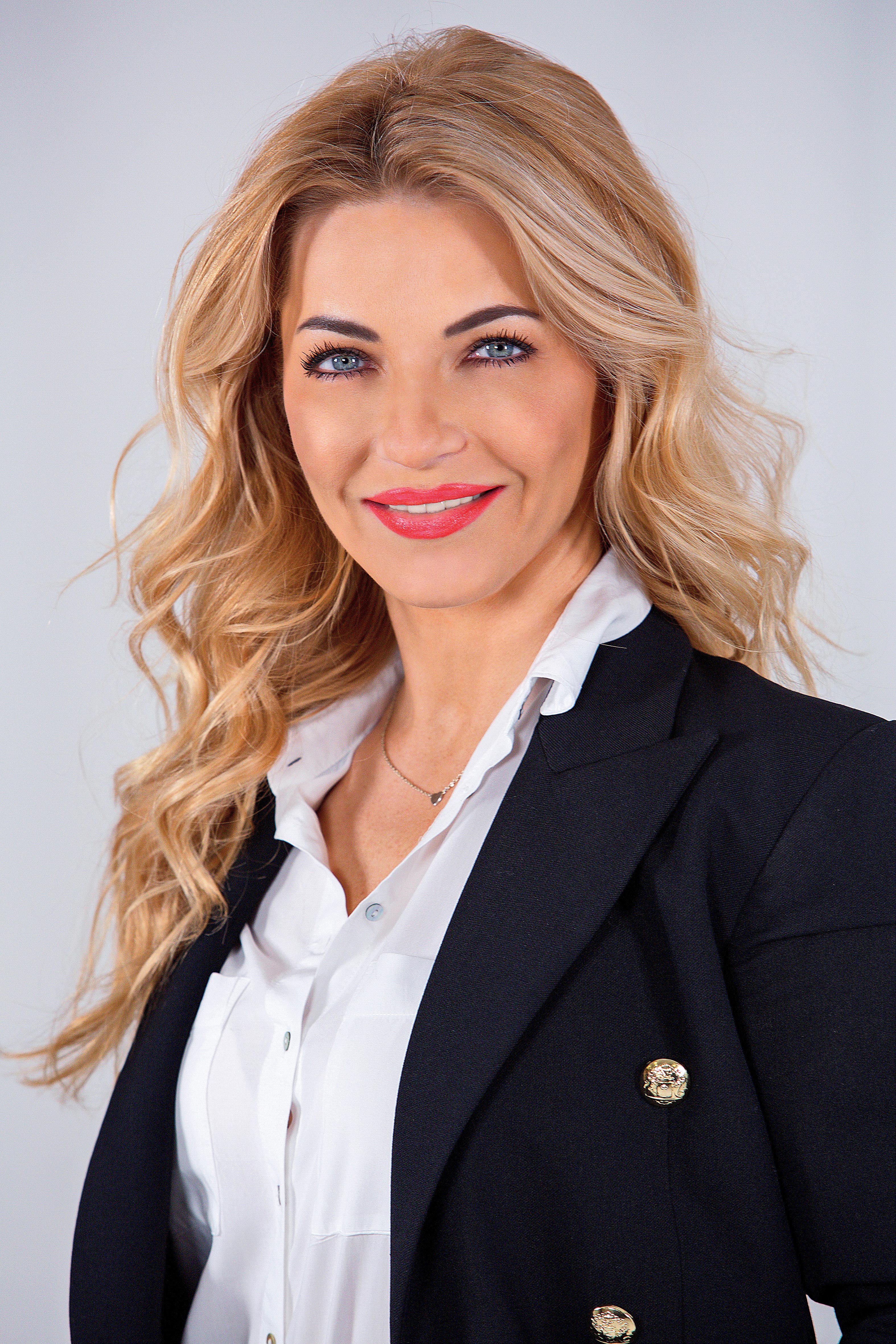After three years, TV host Martina Šimkovičová is back in the world of politics. More than 27.5 thousand preferential votes have catapulted her from twelfth to fourth place on the SNS ticket in the Slovak National Council election. And what's more, she has become the new minister of culture.
What will be the first item on your agenda when you take office? What needs to change, and what's good at the ministry instead?
You know, the main thing is to adopt a professional approach to the ministry. With that in mind, I believe it is important for me to first conduct a systematic analysis of the environment at the ministry before I am able to provide an informed answer to the part of your question as to what needs to change quickly and what's good about the ministry instead. My plan is to first lean on the experience of the current Ministry of Culture staff during my internal analysis of the environment at the department. Once I've had time to carefully map out the environment, I will be happy to provide a more specific answer, but until then, I would like to keep my answer at this level.
If you were to rate the current level of Slovak theater, film, literature, music, etc., does Slovakia have something to be proud of in these areas, or do any of them require improvements or changes?
Slovak culture is an inseparable part of the Slovak nation. Throughout our rich history all the way up to the present, we have seen cultured, honorable, prominent, and inspiring people come up from our midst that Slovak society can be rightfully proud of and whose passion, dedication, creativity, and hard work command genuine respect and recognition even beyond our borders. You're asking if anything should be improved or changed. You must never rest on your laurels. And it is only constant self-improvement that keeps you moving forward. A major inspiration to the world in terms of self-improvement is – and I'll provide an example of a person from the Czechoslovak era – the immortal Emil Zátopek who had a very simple recipe for moving forward: Speed up. I mention this because our fraternal nations have a historically unseverable connection and we must humbly admit that this period had a positive impact on our Slovak culture. By the way, I do keep a close eye on the situation, and despite both of us "brothers" having become individual sovereign states, our cultural cooperation is still very much suffused with the spirit of Czechoslovakia.

With President Zuzana Čaputová while being sworn in as minister
You've appeared on the tickets of three political parties in the past (Sme rodina, Starostovia a nezávislí kandidáti, and Hlas ľudu). What was it about the SNS that drew you in?
My acceptance to run on the Slovak National Party (SNS in Slovak) ticket was a rational decision based on a sequence of events that took place prior to this year's parliamentary election. I worked in the field of alternative media where I was trying to actively influence the information imbalance that I felt in mainstream outlets – in the sense of introducing more objectivity into the sea of information. During my regular communication with the public, I was feeling more and more that an appreciable portion of the Slovak public would be happy to see me run in the election as its representative and bring objective balance into the National Council of the Slovak Republic. Having listened to public opinion I internally accepted the responsibility, and the Slovak National Party ticket, which was one of the ones I was offered to run on, was the logical conclusion in terms of future coalition potential from my point of view and based on election polls. Maybe there was even a little bit of luck involved – and I am extremely grateful to not have let my voters down.
You know the media world well. How do you feel about its quality in Slovakia?
You know, you say I know it well, but I must humbly mention the old Greek saying: "Oida ouden eidós", the immortal and ever-relevant words of Socrates: "I know that I know nothing", which we know from the Dialogues of Plato. And as for quality, it's up to the control process. Control in the true sense of the word as regards culture is not within my purview. An unbiased critic must be the judge of quality to ensure objectivity. Given the conflict of interest, If I dared pass judgement on quality, my response would simply not be objective.

Members of the new Slovak government after being sworn in by President Zuzana Čaputová
SNS Chairman Andrej Danko recently stated in a TA3 interview, "I don't believe that we should have a ballet Dancer from Korea, or foreign conductors, when we have Slovak artists." Do you agree, or are you more sympathetic in this matter?
Chairman Andrej Danko is a pure-blooded nationalist and in the context of his nationalist view, his words can be understood. Allow me to be a bit more specific, though: If there is an expert who is better somewhere in the world, let us find a way to learn from them. My father always said that you learn the most when you learn from your betters.
You have been through a hectic election, hectic post-election sessions, and you are likely in for hectic days in your new office. What is a reliable way for you to relax?
Hectic means restless, rash, almost compulsive. Essentially, it is an emotion that you let yourself get assailed by when you lose sight of the big picture. Losing sight of the big picture and succumbing to negative emotion happens quite easily to the head of a ministry. To prevent that, you must surround yourself with high-quality people who can help you interpret things from a bird's eye view. And if you manage to maintain that view, you won't succumb to the hectic emotion. But I must add that I am just a regular human being and mental hygiene is an integral part of maintaining your mental health, which has a significant effect on how well you do in your professional life. My children are the best mental hygiene practice for me; I try to spend as much of my free time with them as I can, seeing as two of them are already adults, and so I spend all of my free time with my little daughter and support her in her activities in theater, dance, singing, and playing the piano.
The interview was conducted shortly before Martina Šimkovičová was sworn in as a minister

CV BOX
Martina Šimkovičová (born August 29, 1971, in Modra) is a former Slovak TV host, ex-member of the National Council, and the minister of culture of the Slovak Republic.
In 1993, she earned a master's degree in special needs education from the Comenius University Faculty of Education, where she also defended her Ed.D. title in curative education in 2015.
In 1998, she started working for TV Markíza where she ultimately ended up being the evening news anchor. She left after nearly 18 years and hosted debates on the Slovan live TV stream.
In 2016, she was elected into the Parliament for the Sme rodina party. Two months later, she was forced to leave due to a difference in opinion, and continued as an independent. In 2019, she ran for the European Parliament for the Starostovia a nezávislí kandidáti party but didn't make it through the election. A year later, she didn't succeed in the National Council election for the Hlas ľudu party. She has found success in this year's snap election under the SNS flag, becoming an MP and getting nominated for the post of minister of culture by the coalition.
Šimkovičová is a responsible mother, she has three children – daughters, Petra and Sofie, and son, Marek.